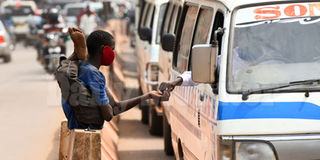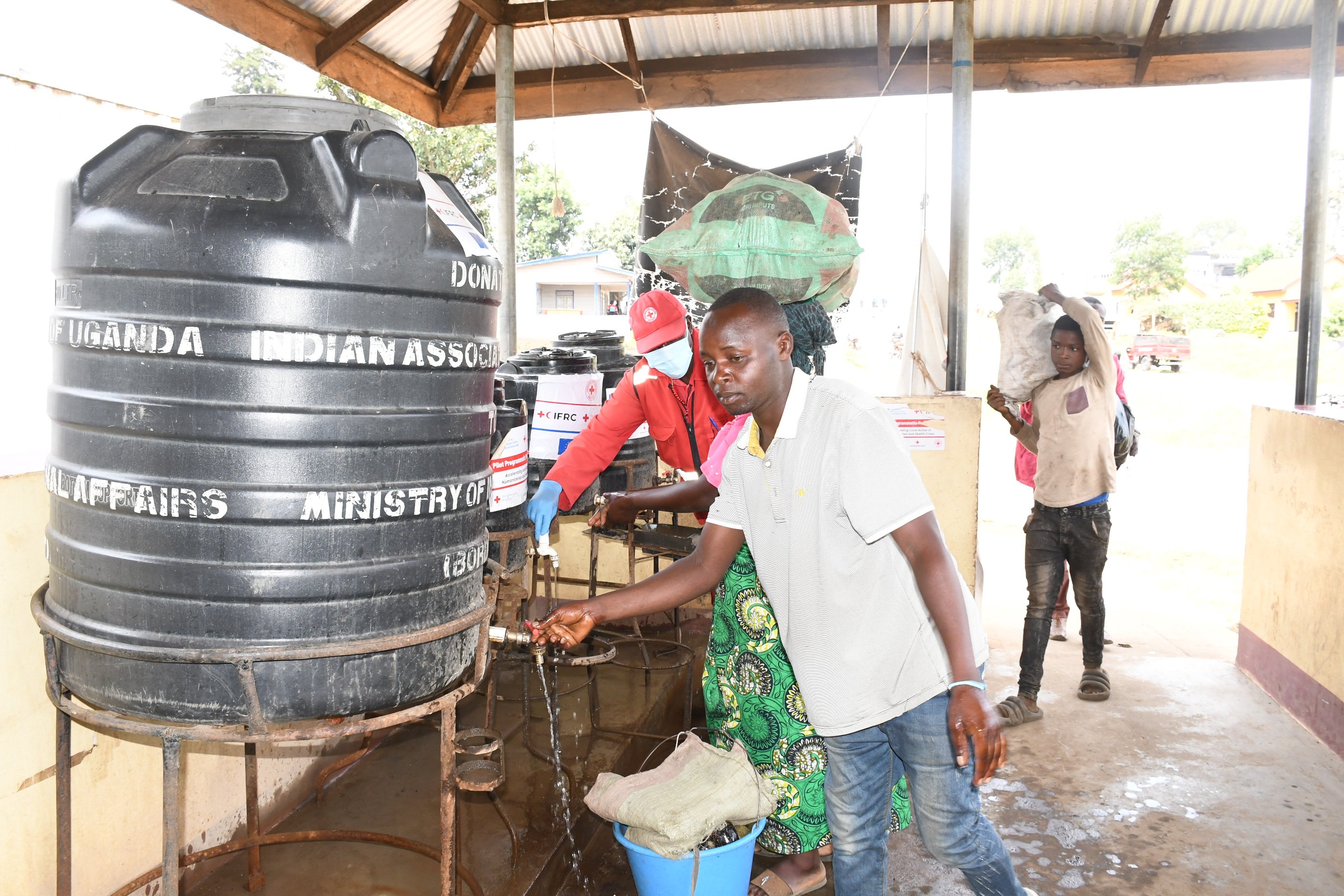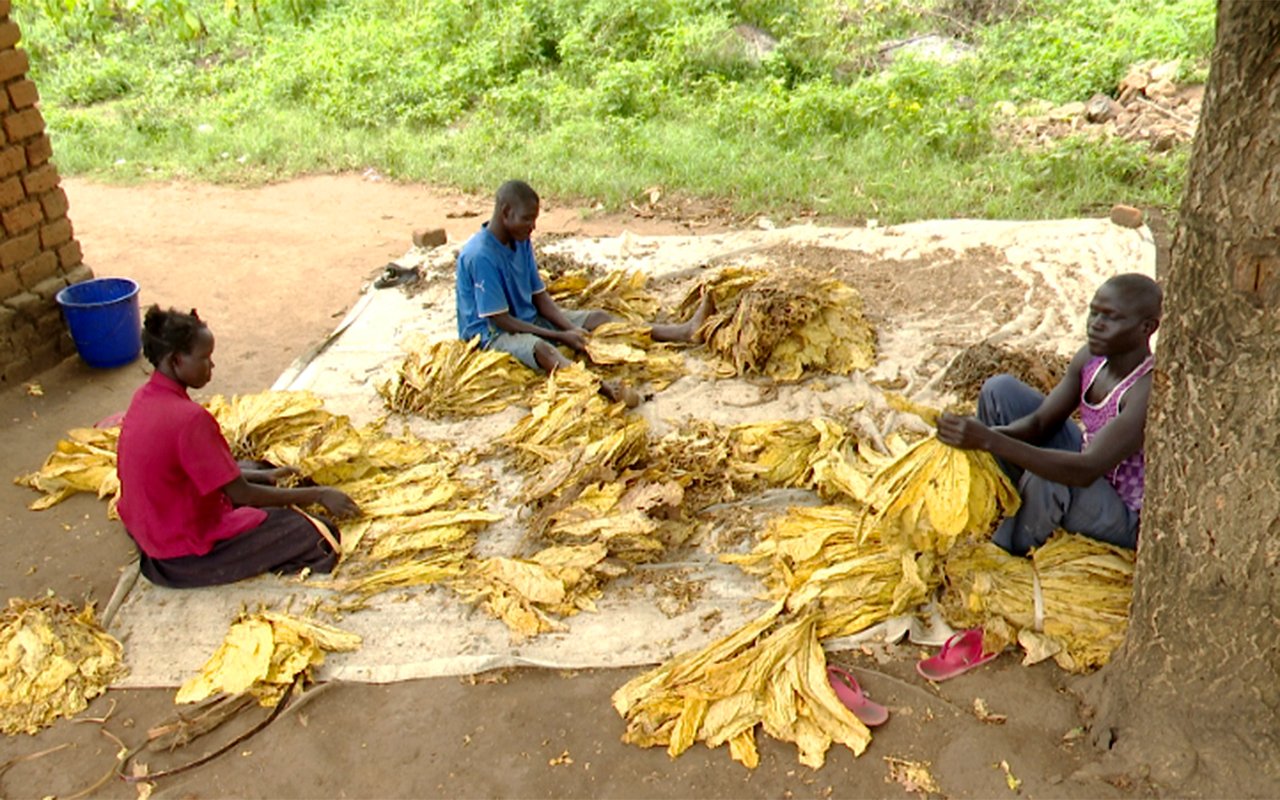Prime
Getting children off the streets through vocational training

A street child shows off his acrobatic skills to motorists at Clock Tower in Kampala on September 1. PHOTO/ABUBAKER LUBOWA
What you need to know:
- In a bid to reduce the numbers of children on the streets of Gulu, different development partners have adopted skilling of these children and youth under an initiative dubbed ‘destiny youth’.
It was on a cold evening in 2001 when Kenneth Akena was beaten into coma, before being chased out of home by his uncle for alleged stealing money he had kept under the bed.
Akena says his uncle would often punish him on allegation of stealing something, even when he was innocent. This forced him to seek refuge on the street.
“I was just eight years old when my mother died, and l went to stay with my uncle in Gulu Town. My uncle was nice at first but when his wife kept accusing me of stealing, he would beat me almost daily,” Akena says.
Narrating his heart-wrecking story, Akena, a Primary Three dropout from Gulu Prison Primary School, Gulu District, says he was forced to leave on the streets at the age of 10.
“I was occasionally accused of stealing something, beaten, denied food and locked outside the house. I felt lost. I would cry all night,” Akena narrates.
Life on street
Akena says the older street children would steal food and bring it to him and other younger children. They would also ransack garbage pits near hotels for food.
“With time, life became harder. I would often fall sick but get little or no medical attention. When I turned 13, I would steal some items and take to those older than me to sell. That is how I was surviving on streets,” Akena says.
Turning point
Akena says he stayed on the streets for 17 years, before accepting to begin a new life after he was approached by a man who talked them into leaving the streets.
“I was hesitant to accept since many of my colleagues had ended up in police custody after people approached them in the guise of helping to get them off the streets. I had lived on the streets for 17 years and given what I had gone through during this period, including the terrible things I had done, the numerous times I had been to jail or the times I had been beaten by a mob, made me feel I was already spoilt beyond repair,” Akena says.
However, after Akena accepted to leave the streets, he was taken through a three-month psychological counselling by Favour of God Ministries, before being taken for vocational training, where he acquired fisheries skills.
Hope Clindi Aber, 27, a resident of Omel in Amuru District, says she spent four years on the streets of Gulu City after the father of her two children abandoned her.
Aber says after the man abandoned her, she was left with no means to feed her children so she ended up as a sex worker on the streets of Gulu in order to raise money to cater for her children.
“Being an orphan and illiterate, I had no one to run to. I made up my mind to go to the streets,” Aber says.
In 2019, Aber was taken off the streets and underwent tailoring training as a means to rehabilitate her.
Successful former street child
At 27, Yusuf Kalidi is employing 13 people and 10 trainees (all former street children) at his carpentry workshop at Layibi Trading Centre, Gulu City. It is a business he started with an initial capital of Shs36,000 upon acquiring knowledge in carpentry.
Kalidi, a Primary Four dropout from Ibanda Primary School in Iganga District, says he, at the age of nine, was lured into drug smuggling by a renowned businessman in Busia Town.
“He [businessman] promised to take me back to school and provide me with basic needs. Little did I know that he wanted to use me to smuggle drugs like marijuana, cocaine and heroin across the border.”
After four years on the streets, Kalidi says he left after surviving numerous arrests and sometimes death at the hands of border security personnel. He went for vocational training in carpentry.
“No child deserves to stay on the streets and that is why I am dedicated to employing and training fellow street children so that they can leave the streets and live better lives,” he says.
Akena, Aber and Kalidi’s story highlights the benefits of providing vocational skills as one of the ways to get children off the streets in Gulu City and other urban areas.
Gulu City is arguably one of the fastest growing cosmopolitan cities in northern Uganda ever since the guns fell silent, ending more than two decades of insurgency orchestrated by the Lord’s Resistance Army (LRA) rebels.
With spurred development marked by better social service provision, the city’s population started swelling, thanks to migration of people from various parts of the country to tap into opportunities in Gulu Town.
With the growing number of residents, the city started grappling with rising crime cases.
For instance, on June 20, 2019, about a street gang, armed with clubs and machetes, reportedly raided Gulu City Industrial Area to exact revenge on members of a vigilante group.
On June 15, 2019, a boda boda rider identified as Walter Ongom, was hacked to death at his home in Aywee Ward in Pece Division by unknown thugs.
In May 2019, Lucy Akello, a fish vendor in Gulu Town, was killed near her home in Vanguard Parish, Pece Division.
In January 2019, unknown thugs stabbed to death Christine Anyeko, a daughter of Northern Uganda Bishop Emeritus Nelson Onono Onweng while on her way to church.
The street gangs were also accused of carrying out numerous attacks on unsuspecting journalists, business persons, boda boda riders and night commuters. They were also said to be behind the numerous cases of house break-ins within the area.

A street child carrying a baby begs for money from motorists at Jinja Road traffic lights in Kampala in 2018. Different development partners have come up with vocational training as one of the initiatives aimed at getting children off the streets of Gulu City. PHOTO / ABUBAKER LUBOWA.
The Gulu Deputy Resident City Commission, Mr Francis Okello, told Daily Monitor early this week that there are more than 2,000 street children in Gulu City, saying many have since formed gangs causing insecurity in the area.
“We have been registering issues of insecurity within Gulu. Our investigations show that the perpetuators are and youth from our communities, who have left their homes to stay on the streets,” Mr Okello said.
“We have arrested several of them and they are under our custody,” he added.
Seeking permanent solution
In a bid to reduce the numbers of children on the streets of Gulu City, different development partners have adopted skilling of these children and youth under an initiative dubbed ‘destiny youth’.
The five-year initiative is being implemented by Favour of God Ministries, which seeks to provide vocational skills to street children and youth as a means of rehabilitating them and finding alternative means of living outside the street.
Pastor Samuel Okello, a supervisor at Favour of God Ministries, says there has been a reduction in crime rate in Gulu City since 2019 when the initiative was launched.
“There has been an 80 to 90 per cent decrease in crime rate in the city of Gulu, according to police reports, and we attribute this to the positive engagement of these street children by the different organisations working to rehabilitate them,” Pastor Okello says.
“Skilling street children and youth equips them with practical skills, which support them in life after leaving the streets. We take them through transformation processes that involve trauma counselling before enrolling them on vocational training,” Pastor Okello says.
However, Mr Michael Ojok, a team leader at #Gulu, another organisation working to rehabilitate street children, says many former street children who have gained vocational skills fail to get employment because of stigma from the public.
“Offering the skills alone does not help. We need to fight the stigma that these people face just because they were street children,” Mr Ojok says.
He adds that many young people they had reintegrated into the community have since returned onto the street because of stigma from parents and the communities.
“In 2019, we took one child back to their home in Amuru, but on arrival, the father didn’t welcome the child back home. As we returned to Gulu, the boy followed us back,” Mr Ojok reveals.
Ms Jessica Anena, a probation officer, blames the rising cases of street children on domestic violence and negligence by the parents.
“There is need to strengthen the families of these children because most of the factors that force these children to the streets are at family level,” she says.
Background
What gender ministry says
Mr Frank Mugabi, the spokesperson of the Ministry of Gender, Labour and Social Development, says the ministry has since decentralised the matter of street children to the district authorites. He says districts were advised to prioritise skilling of street children as one of the ways of reducing their numbers on the streets.
“Each district needs to prioritise the matter of street children and budget for them accordingly. As a ministry, we are focusing on policies and addressing national issues, so we expect the district to solve issues of street children through different interventions, including vocational skilling, among others,” Mr Mugabi says.




